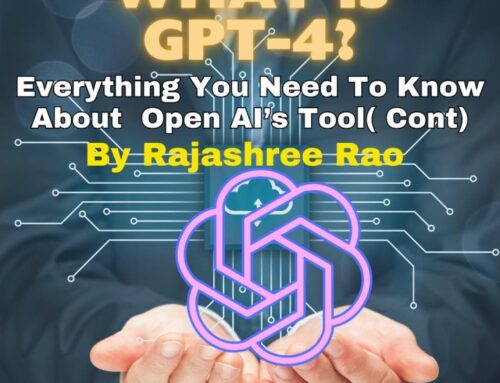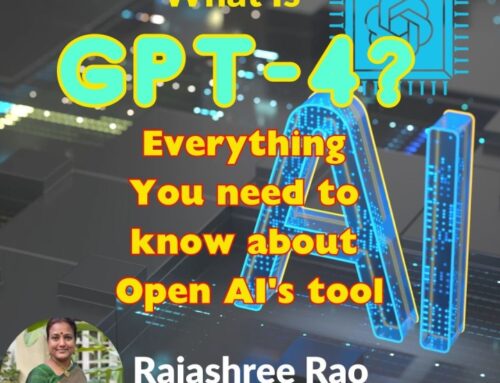Industrial Revolution 4.0 has its advantages and the challenges facing such an approach. Let us understand the underlying potentials and the future of employment.
The Advantages and Challenges of Industry 4.0: Industry 4.0 will revolutionise the way manufacturing processes work in the near future. However, it is critical to weigh the benefits and challenges that a company might potentially face.
Industry 4.0 Advantages:
- Customisation: Creating a customer-oriented market that is flexible and will meet the population’s needs and growing demands fast and efficiently. It will destroy the gap between the manufacturer and the customer and communication will take place directly between them. Manufacturers will not have to communicate within factories and companies and externally to the customers, which in turn fastens the production and delivery processes.
- Optimisation: Production optimisation is a significant advantage of Industry 4.0. A ‘Smart Factory’ containing hundreds and thousands of smart devices that can self-optimise will lead to almost zero production downtime. This is extremely critical for industries which use expensive and high manufacturing equipment as the equipment in the semiconductor industries. Being able to utilise production consistently and continuously, the company will profit; cost-efficient and increased productivity. According to a PwC report – “Digitised products and services generate approximately Euro 110 billion of additional revenue per year for the European Industries.”
- Pushing Research: The adoption of industry 4.0 technologies will influence research in different fields like IT security and will have an impact in particular o the education industry. A new industry will require new skill-sets. Consequently, ‘Education and Training’ will take a new-shape which caters to such industries which require skilled-labour.
Industry 4.0 Challenges:
- Capital: This kind of transformations will require massive investment in new technologies like AI, IoT, or Robotics, which is not cheap. The decision to make such transformations will have to be taken at the C-level. Despite, the risks must be calculated and taken seriously. To add, such developments will require huge capital which alienates small businesses and might cost the company their market share in the future.
- Security: The most challenging aspect of implementing industry 4.0 framework or techniques is the IT security risk. The online integration might create data leaks and security breaches. Cyber theft should also be considered since, in this case, the problem is not individual, but could, and probably will cost the manufacturers the money, and it even might damage their reputation. Therefore, adequate research on ‘security’ is crucial.
- Privacy: Data privacy is not only the customer’s concern but also the manufacturer’s. In the interconnected industry, manufacturers should gather and analyse the data. To the customer, this might appear to be a threat to his or her privacy. This is not only exclusive to consumers, but large or small companies who have not shared their data in the past will also have to work their way to an even more transparent environment. Bridging the gap between the producer and consumer will be a big challenge for both the parties.
The Future of Employment or Workforce:
Industrial revolution 4.0 promises a lot when it comes to investment, revenue, and technological advancements. However, employment remains one of the most mysterious aspects of the industry 4.0 revolution. Therefore, it is even harder to estimate or quantify the potential rate of employment. What type of new job will be introduced? What does a ‘Smart Factory’ worker require to compete in the ever-changing environment like this? Will this kind of change lay-off many workers? These are all valid questions of the average worker.
Industry 4.0 could be the peak of technological development in manufacturing. Although it still sounds as if the machines are over-taking the industry. Consequently, it is essential to analyse the approach further to conclude the labour and demographics in the future. This will prepare the workers of today for a not so far future transformation. Given the nature of the industry, it will introduce new jobs in robot experts, big data analysis, and a vast segment of mechanical engineers. In an attempt to determine the kind of jobs which the industry 4.0 will introduce or the kind of skilled-labours they would require. BCG has published a report to showcase how ten of the essential use-cases for the foundation of Industry 4.0 will be affected.
Following are some of the critical changes that will impact the demographics of future employment:
- Robotic-assisted Production: The new industry entirely relies on smart devices being able to communicate with the surrounding environment. It means that the workers who assist in the production line packaging will be laid off and replaced with a smart device equipped with sensors, actuators, and cameras that can identify the product and deliver necessary changes for it. Consequently, the demand for this kind of labourers will be replaced with “Robot-coordinators.”
- Big Data-Driven Quality Control (QC): In the regular term, quality control aims in reducing the inevitable variations between products. QC depends to a great extent on statistical methods to show whether a particular feature of a product such as weight, size, or shape is changing in a way that can be considered a pattern. While, such a process largely, depends on collecting historical or real-time data regarding the product. Therefore, since Industry 4.0 will primarily rely on big data, the need for QC workers will decrease. On the other hand, the demand for data scientists is increasing consistently.
- Product Line Simulation: The need for optimisation for transportation is declining; the need for industrial engineers who work on optimisation and simulation to simulate production lines will increase. Having the technology for production line simulation before the organisations could open up jobs for mechanical engineers specialising in the industrial fields.
- Predictive Maintenance: The introduction of smart devices will enable manufacturers to predict machine failures well in advance. Intelligent machines can independently be able to maintain themselves. Consequently, the requirement of the traditional maintenance engineers or technicians will drop, and they will be replaced with more technical and highly skilled ones.
- Self-Driving Logistics Vehicles: The most important focus of optimisation is transportation. Engineers use linear programming methods such as the transportation model to utilise the use of transportation. However, with the autonomous or self-driving vehicles, and with the data assistance, many drivers will lose their jobs. Besides, the self-driven vehicles will allow for restriction-free working hours with higher utility rate.
- The ‘Machine as a Service’ (MaaS): The industry 4.0 will enable manufacturers to sell a “Machine as a Service.” This means, instead of selling the complete machine to the client, the machine will be set-up and maintained by the manufacturer while the client takes advantage of the services it provides. This will open up job opportunities in the maintenance and would require an expansion in the sales function for selling the MaaS.
In future production processes, man-machine and product will be communicating with each other, allowing for a self-organized production process. The product itself will become a crucial information carrier. By using industry 4.0 technologies, they will autonomously decide where and how they are produced. Throughout Germany, companies and research institutes are working together to create software communication between people, machines, logistics, and products, must be achieved in real-time. This way, all production, the processes ranging from supply to delivery can be optimized and customized. At one end of the chain, the industry have the smart factory improving production quality at the other they have the smart product and data-driven services. While they are very well positioned regarding smart products, they have to further develop on know-how in the field of data-driven services. This is where I see great potential for future revenue.
In the internet-of-things products and devices are automatically identified by intelligent sensors they are linked to each other via the Internet. In this way, valuable information is obtained and analyzed. However, the security of this information is essential for a successful and efficient industry 4.0 and a vital issue for the research at IBM. Due to the specialised vocational training and a phenomenal network of universities in Germany including the research facilities that deal with Industry 4.0 and the Internet of Things combined with experience and quality Germany is in an ideal position to attract the best and brightest in the future. German research Institutes are amongst the world’s leading pioneers in taking on the challenges of Industry 4.0.
The German Research Centre for artificial intelligence and the smart factory – ‘Kaiser’s Louden’ have partnered with industry to build the first cross-vendor industry 4.0 installation. This demonstrates how sophisticated information technologies are integrated into factory automation. Industry 4.0 was a networking vision it only works in a network. We need to connect partners within the network, and these partners must speak the same language this not only applies to human communication but also to technologies besides all machines have to speak the same language. This not only applies to human communication but also to technologies. Besides, all machines have to speak the same language. As a result, the industry has to create standards, and the standards can only be developed together, which is one of the focal points the industry 4.0 community is addressing.
The Fraunhofer Institute is internationally renowned for its comprehensive industry 4.0 research. Intelligent production lines for the automotive industry is being developed at the ‘Fraunhofer IWU.’ Sensor networks allow for the flexible production of different car body styles on the same production line. In future, the industry will have more flexible processes. Think of the automobile sector, for instance, from the supplier of steel that makes body parts to an OEM right through to the car dealership. Therefore, the manufacturer will see cost reductions, shorter time to market and great potential for optimisation in general. If the data is compared across different industry sectors for instance and connect vehicle and meteorological sensors with weather forecast or insurance companies, the industry would gain new insights and develop entirely new business models by centrally analyzing and correlating these massive amounts of data.
To summarise, For the Government of the Federal Republic of Germany ‘Industry 4.0’ is a critical element of securing Germany’s status as a ‘Manufacturing Hub’ globally. Germany’s key advantages are its highly developed industrial landscape and industries which exists in Germany and not in other countries. Therefore Germany has excellent conditions for the development of Industry 4.0 and the Federal Government supports these developments with funding such as the Aviation and Space industries, smart grids or the maritime industry. Hence, Germany is ahead of the game while the rest of the world is yet to catch-up with the transformation. The Internet of Things and Industry 4.0 create global supply chains and are turning our world into an information economy and resulting in which the data standards and global security are required and only then can the industry ensure that the market develops confidence in new products and services and that the companies can pass this confidence to the consumers.
Image Credit: Pixabay



